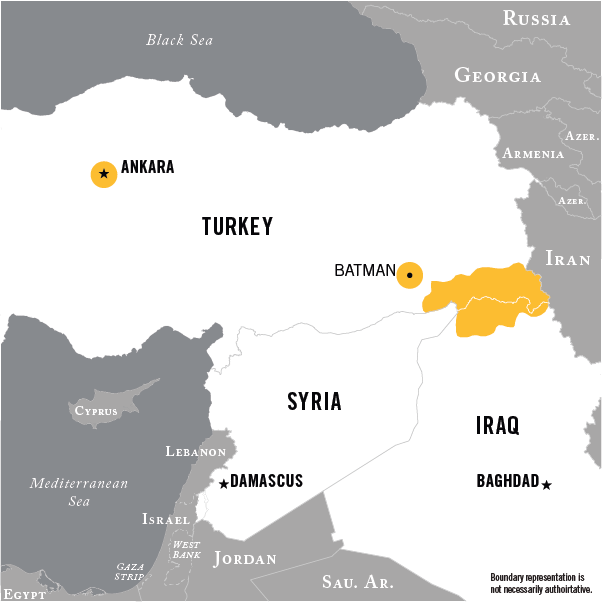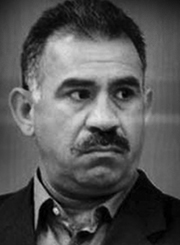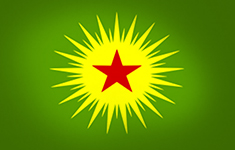TERRORIST GROUPS

BACKGROUND
The Revolutionary People’s Liberation Party/Front (DHKP/C) was created in 1994 when its predecessor group, Devrimci Sol or Dev Sol, splintered after factional infighting. The Marxist-Leninist group espouses an anti-US, anti-NATO, and anti-Turkish establishment ideology and has targeted US interests intermittently for several decades, most recently in February 2013 when a suicide bomber targeted the US Embassy in Ankara, killing a Turkish security guard. Its goals are the overthrow of the Turkish state, the removal of the US and NATO footprint from Turkey, and the abolition of one- to three-man prison cells, called F-type prisons, in Turkey. The US Department of State in April 2014 offered rewards for information on three DHKP/C leaders through its Rewards for Justice program. In response, DHKP/C issued a statement calling the United States its “chief enemy.”
DHKP/C added suicide bombings to its tactics in 2001, with successful attacks against the Turkish police, in addition to improvised explosive devices and targeted assassinations. Increased attacks in 2003 probably were a reaction to Turkey’s support of Operation Iraqi Freedom. DHKP/C entered an operational lull until mid-2012 when the group resumed attacks against Turkish police targets. Following the February 2013 US Embassy attack, DHKP/C has continued targeting Turkish Government and police interests, indicating that the group remained operationally viable despite crackdowns. For example, the group on 31 March 2015 took hostage a Turkish prosecutor—who along with his captors was killed during a shootout with police—and on 1 April attempted a failed suicide bombing targeting the Turkish National Police’s Istanbul headquarters.

The Kurdistan People’s Congress (Kongra-Gel or KGK, formerly the Kurdistan Workers’ Party, PKK) is a Kurdish separatist group primarily active in part of northern Iraq and southeastern Turkey. Composed mostly of Turkish Kurds, the group in 1984 began a campaign of armed violence, including terrorism, which resulted in over 45,000 deaths. KGK and Turkish forces clashed repeatedly in 2011 and 2012, including an attack in October 2011 that killed 24 Turkish troops and was the deadliest incident since 1993. KGK also stepped up its kidnapping campaign against Turkish state employees and soldiers, which included the unprecedented abduction of a Turkish parliamentary deputy in August 2012.

The KGK’s imprisoned leader, Abdullah Ocalan, in 2012 entered into peace negotiations with the Turkish Government. Negotiations continued into 2014, though KGK leaders expressed frustration, charging the Turkish Government failed to establish legal and constitutional guarantees. The accompanying cease-fire endured despite clashes and tensions in southeast Turkey sparked in part by the construction of Turkish military outposts that Kurdish supporters allege undercut the peace process.
Clashes in July 2015 between Turkish security forces and KGK resulted in nationwide detentions of alleged KGK members and a wave of Turkish airstrikes against the group’s camps and weapons stores in northern Iraq. Renewed KGK violence against Turkish authorities had resulted in the deaths of at least 11 police and army members as of late July 2015.



